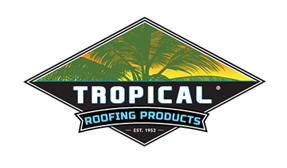Energy-Efficient Roofing Solutions for Acworth Properties
Acworth homeowners recognize energy efficiency as a critical factor in roofing decisions that impact long-term comfort and utility costs. Modern energy-efficient roofing technologies provide significant benefits through reduced cooling expenses, improved comfort, and environmental sustainability throughout Georgia's challenging climate conditions.
Cool Roof Technology Benefits
Advanced cool roof systems reflect solar radiation while emitting absorbed heat more effectively than traditional roofing materials. High-reflectance surfaces reduce cooling loads during Georgia's intense summer heat, while thermal emittance properties release accumulated heat during evening hours.
Homeowners often experience substantial cooling cost reductions when upgrading to energy-efficient roofing systems. Professional evaluation determines the most effective cool roof technologies for specific home orientations, architectural styles, and local climate conditions.
Insulation System Integration
Comprehensive energy efficiency requires proper integration between roofing materials and insulation systems that create effective thermal barriers. Advanced insulation technologies prevent heat transfer while managing moisture concerns that can compromise system performance and indoor air quality.
Our experienced team at Level Seven Services specializes in integrated energy-efficient roofing systems throughout Acworth, combining cool roof technologies with optimized insulation for maximum performance. Professional installation ensures proper thermal barriers while maintaining code compliance. Contact us at (770) 231-5946 to explore energy-efficient roofing options for your property.
Ventilation and Airflow Management
Effective energy efficiency requires proper attic ventilation that removes excess heat while preventing moisture accumulation. Ridge vents, soffit vents, and powered ventilation systems work together to maintain optimal attic temperatures and humidity levels throughout seasonal variations.
Professional ventilation design considers specific roof configurations, attic spaces, and local climate patterns to ensure adequate airflow. Balanced ventilation systems prevent hot spots and moisture problems that can compromise both energy efficiency and structural integrity.
Material Selection for Efficiency
Different roofing materials provide varying levels of energy efficiency based on reflectance, emittance, and thermal mass characteristics. Light-colored asphalt shingles offer improved reflectance over traditional dark materials. Metal roofing systems provide excellent reflective properties with long-term durability benefits.
Professional material selection considers total lifecycle costs, aesthetic preferences, and local climate conditions to optimize energy performance. Our comprehensive residential roofing services include energy-efficient material recommendations that balance performance, cost, and appearance considerations.
Utility Rebates and Incentives
Energy-efficient roofing systems often qualify for utility rebates, tax credits, and other financial incentives that offset installation costs. Georgia Power and local utility companies provide rebates for qualifying cool roof installations that meet specific performance criteria.
Federal tax credits support renewable energy improvements including qualifying roofing systems that demonstrate measurable energy efficiency improvements. Professional documentation ensures proper qualification for available incentive programs while maximizing financial benefits.
Performance Measurement and Verification
Energy-efficient roofing performance can be measured through utility bill analysis, thermal imaging, and professional energy audits that verify actual efficiency improvements. Baseline measurements before installation provide comparison data for evaluating system effectiveness.
Professional monitoring identifies optimization opportunities while ensuring systems perform according to design specifications. Regular performance evaluation maintains efficiency levels while identifying maintenance needs that could affect energy performance.
Environmental Impact Considerations
Energy-efficient roofing reduces environmental impact through decreased electricity consumption and reduced urban heat island effects. Lower cooling demands reduce power plant emissions while reflective roofing helps moderate local temperatures in developed areas.
Sustainable material selection includes recycled content and end-of-life recyclability that support environmental stewardship goals. Professional evaluation balances energy efficiency with environmental considerations for comprehensive sustainability benefits.
Long-Term Cost Analysis
Energy-efficient roofing provides long-term financial benefits through reduced utility costs, extended system life, and increased property values. Professional cost analysis considers initial investment, ongoing savings, available incentives, and maintenance requirements for comprehensive financial evaluation.
Level Seven Services provides detailed energy efficiency analysis that helps Acworth homeowners understand total cost benefits while identifying optimal system configurations. Our commitment extends beyond installation to include ongoing performance monitoring through our complete roof maintenance and optimization services , ensuring your energy-efficient investment delivers maximum long-term benefits.



